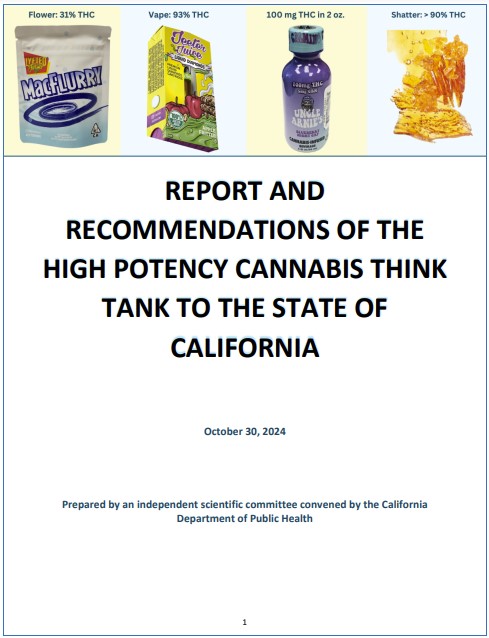New from CERP Director Beatriz Carlini: Report & Recommendations of the High Potency Cannabis Think Tank to the State of California
11/14/2024
ADAI’s Cannabis Education & Research Program Director Beatriz Carlini, PhD, MPH is one of the co-authors of a new report: “Report and Recommendations of the High Potency Cannabis Think Tank to the State of California.”
This report was prepared by a committee of scientists (including Dr. Carlini) and medical experts convened by the California Department of Public Health, in response to a Resolution of the Department of Cannabis Control’s Cannabis Advisory Committee and a Governor’s Directive to provide analysis of the problem of increasing potency of cannabis and cannabis products and to formulate recommendations to address it. The report and its recommendations are based on current scientific literature and knowledge of existing policy.
Evidence reviewed by the Committee finds that there is a pattern of increasing risk with increases in THC concentration. The higher the levels of THC in cannabis and cannabis products, the higher the risk of experiencing adverse events and cannabis use disorder.
Adverse events may be immediate or acute or the result of longer-term or prolonged use. They are more common and can be more intense when cannabis consumed contains 10% THC or more in inhaled products, or 10 mg THC or more in edible products.
Frequent use, especially daily or near-daily consumption (20+ days per month), increases the risk of both acute adverse events as well as adverse events associated with prolonged use. Use of high potency cannabis increases risks both independently and in conjunction with factors such as frequency of use and individual vulnerabilities, including genetic predisposition to certain mental health conditions, as well as social determinants of health such as access to healthcare adverse childhood experiences, and exposure to racism.
The Committee recommends 20 interdisciplinary policies that have the potential to reduce adverse health outcomes related to high potency cannabis, with a set of “top 10” ranked highly for their likely impact on adverse outcomes. Policy recommendations cover a range of topics, including marketing and advertising, product requirements, retail environment, taxation and pricing, consumer information and labeling, public education, and compliance screening and research.





